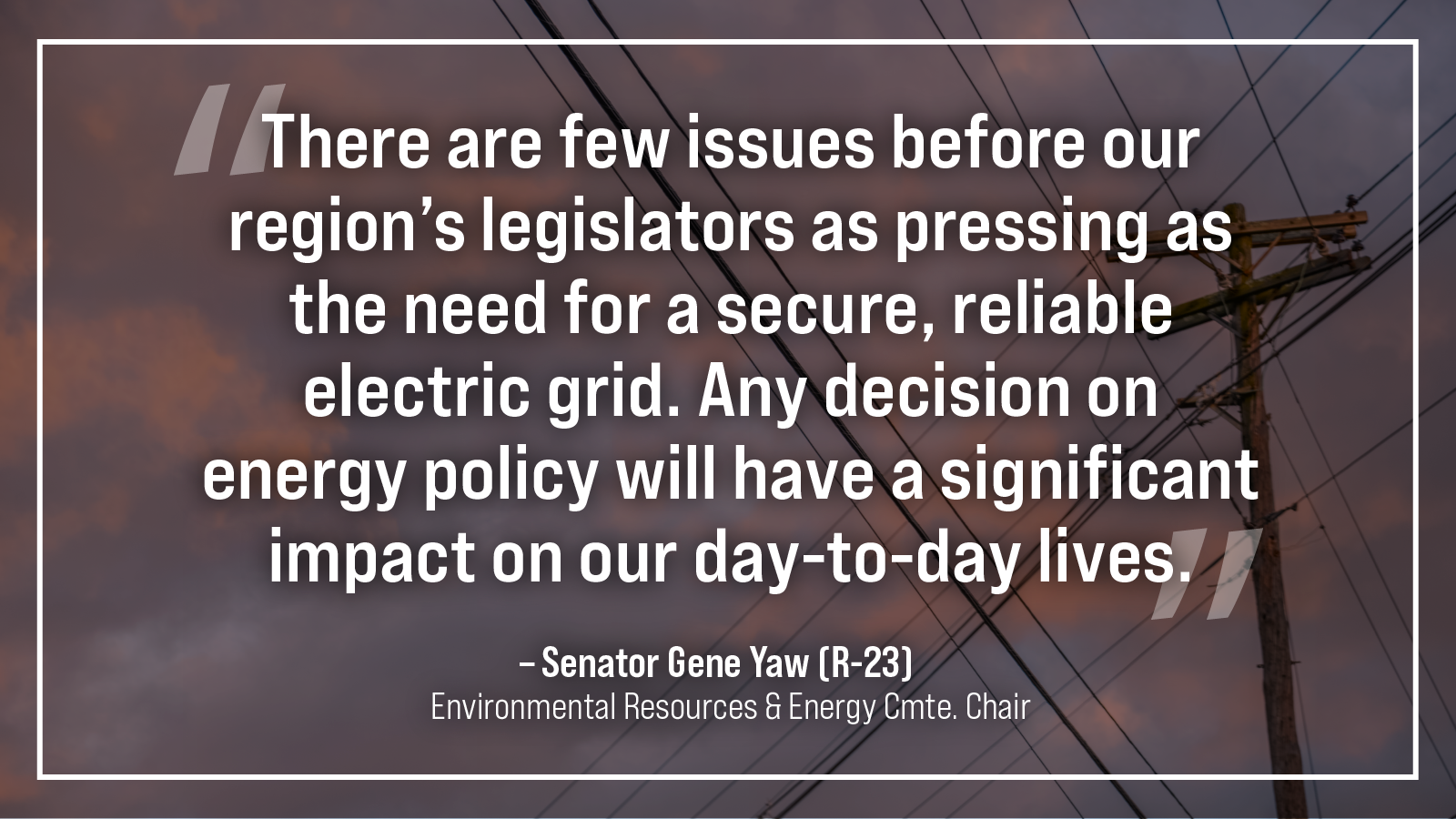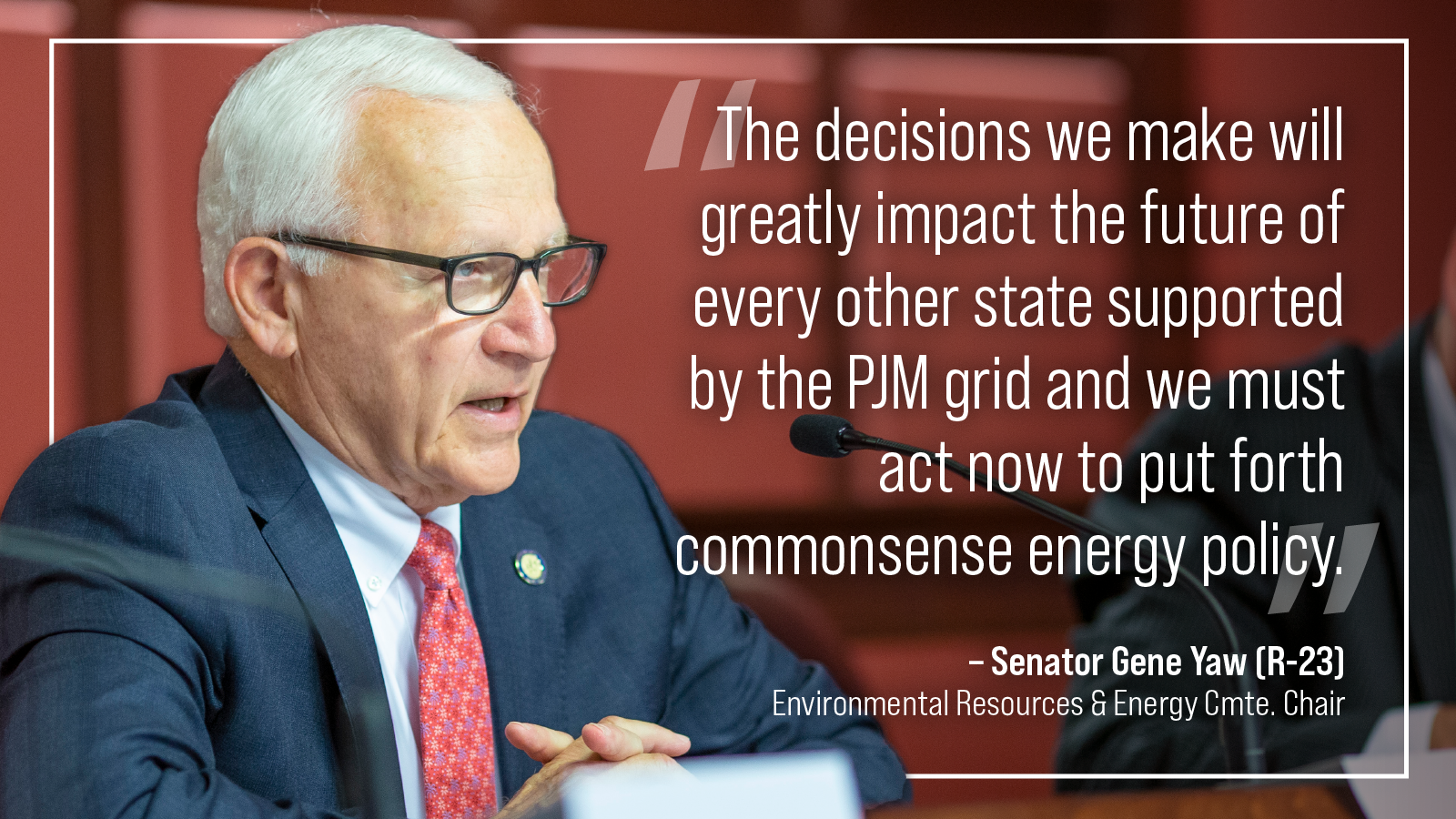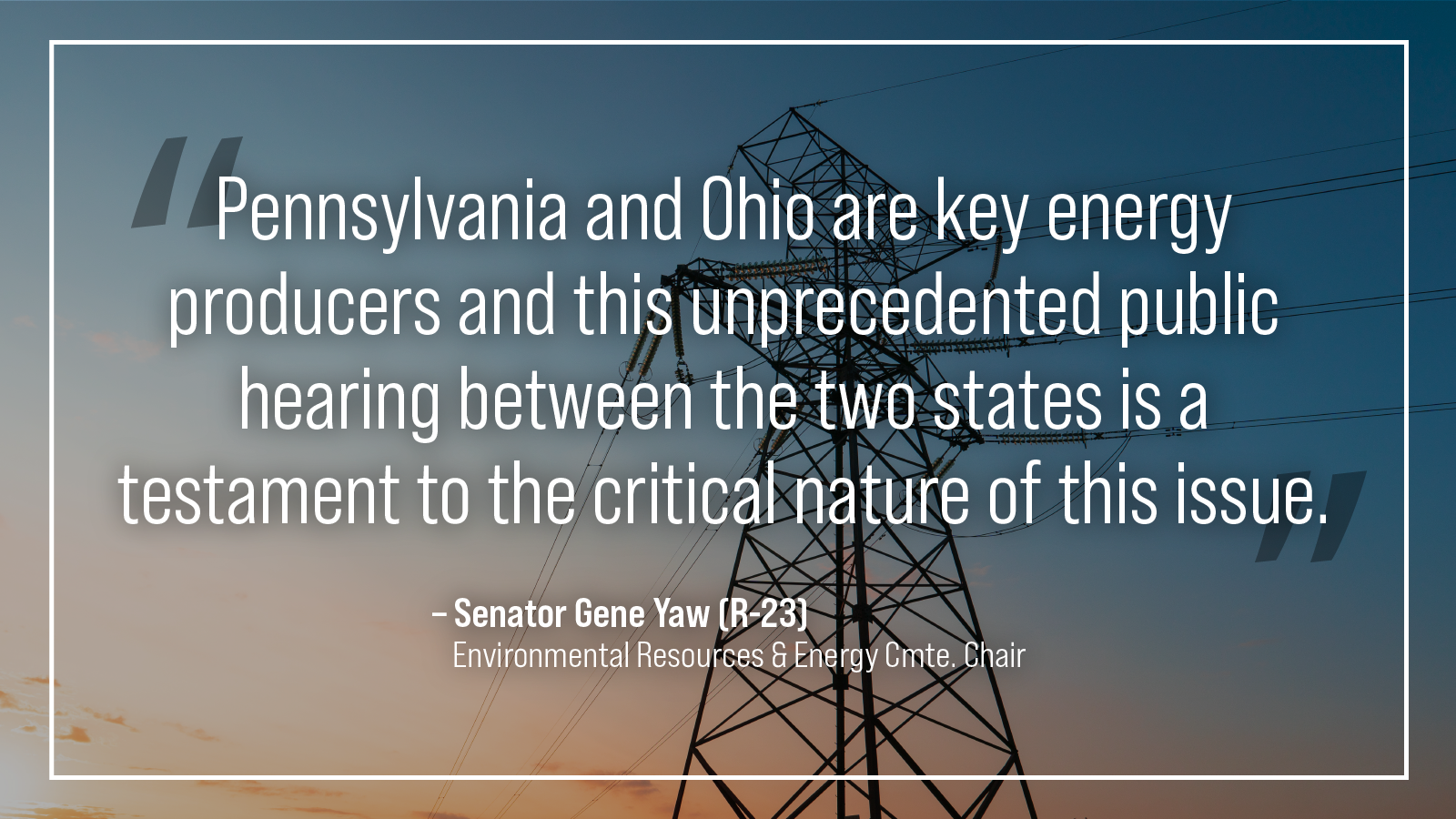Summary |Collaboration, Coordination and Thoughtful Action | Meetings and Hearings | News | Op-eds
SUMMARY
PJM, a regional transmission organization for 13 states and the District of Columbia, coordinates the flow of electricity from generators to local utilities across a web of high-voltage transmission lines. Local utilities distribute this power directly to consumers. PJM believes accelerated retirement of legacy generators – like coal and nuclear – means intermittent, limited renewable energy sources must increase sixfold to fill the gap. Retirements are happening faster than expected and at the current course, PJM is not going to have sufficient power to meet the demands of consumers. This could mean skyrocketing costs, rolling blackouts, and restrictions on when we can use electricity.
Implementation of short-sighted environmental policies like the multistate Regional Greenhouse Gas Initiative (RGGI), overregulation by state agencies, and reliance on renewable energy sources will only expedite the collapse of the already strained energy grid. Wind and solar are great energy sources, but they are not reliable sources. Renewables are intermittent, limited, and dependent on weather. Baseload generation has to be available at 3 a.m. when the sun is not shining and the wind is not blowing.
Natural gas, nuclear and coal plants are on-demand energy sources and not dependent on weather or time of day, which are essential for electric reliability. These are the facilities that can provide electricity at 3 a.m. on an extremely cold or extremely hot night. When renewables come online in states with clean energy goals, they are relying on Pennsylvania to make up that difference. Grid stability requires a diverse energy portfolio.
COLLABORATION, COORDINATION, AND THOUGHTFUL ACTION
As chairman of the Senate Environmental Resources and Energy Committee, I have held multiple hearings to review grid reliability. Overwhelmingly, the testimonies stated that a rush to shutter our fossil fuel-fired power plants would directly impact our bulk power supply. Over the summer, we began working with our neighbors in the Ohio General Assembly to discuss PJM and the reliability of the mid-Atlantic power grid, its infrastructure, and to provide an update on the future outlook of the region’s power production.
We’ve held several meetings and most recently, the first of its kind, bipartisan, bicameral joint public hearing on interstate relationships within the PJM grid. The hearing, the first of its kind held by respective committees from the two states, included testimony from PJM, the organization that manages the mid-Atlantic power grid, the Pennsylvania Public Utilities Commission (PUC), and energy industry experts. The panels highlighted significant concerns regarding the resource adequacy projected for the next three to five years. They emphasized how the PJM electric system is interconnected, and actions taken by any one state can have resounding and immediate impacts on neighboring states. These challenges are amplified when generation is retired, and new generation cannot keep pace with what is being retired.
To successfully address the complex reliability challenges emerging as the grid is transformed, the regional entities, and state and federal policymakers will need continued collaboration, coordination, and thoughtful action.
COMMITTEE MEETINGS AND HEARINGS
January 27, 2025 – Senate ERE Committee Convenes for First Meeting of New Session
October 21, 2024 – Public hearing on Waste to Fuels
November 2, 2023 – Joint public hearing with the Ohio Public Utilities Committee on Inter-State Relationships within PJM Grid
May 1, 2023 – Senate Environmental Committee Briefing Highlights Need to Improve Pennsylvania’s Grid Stability
May 1, 2023 – Meeting regarding follow up briefing on Grid Reliability
February 27, 2023 – Joint Public Hearing on Grid Reliability and Winter Storm Elliot Recap
NEWS
March 29, 2025 – Gov. Shapiro and Republicans appear headed for energy showdown
February 20, 2025 – Iceberg Ahead: Pennsylvania’s Looming Power Crisis
January 30, 2025 – Yaw to Introduce Legislation Addressing Electric Generation Shortfall
August 28, 2024 – Yaw to Unveil Plans for Pennsylvania Baseload Energy Development Fund
August 1, 2024 – Local Legislators Announce Over $3.5 Million in Funding to Strengthen Rural Electric Grid
August 1, 2024 – Local Legislators Announce Over $6.3 Million in Funding to Strengthen Rural Electric Grid
July 18, 2024 – Yaw Measure Establishing Carbon Capture Framework in PA Signed into Law
July 12, 2024 – Yaw Measure Establishing Carbon Capture Framework in PA Headed to Governor’s Desk
May 1, 2024 – Senate OKs Yaw Bill to Create Independent Energy Office in Pennsylvania
April 10, 2024 – Yaw Bill to Increase Penalties Against Attacks on Critical Infrastructure Approved by Senate
April 9, 2024 – Senate OKs Framework for Carbon Capture Sequestration
February 5, 2024 – Yaw Introduces Bill to Repeal RGGI Carbon Tax
February 1, 2024 – Pennsylvania, Ohio Legislators Convene in Columbus to Discuss Energy Reliability, Sustainability, and Affordability
November 7, 2023 – Pennsylvania, Ohio Legislators Hold Joint Hearing on Interstate Relationships within the PJM Grid
August 29, 2023 – Senator Yaw Appears on ‘Face the State’
August 24, 2023 – Legislators from Pennsylvania, Ohio Testify Before PJM Board of Managers
July 31, 2023 – Pennsylvania, Ohio Legislators Meet to Discuss Grid Reliability
May 1, 2023 – Senate Environmental Committee Briefing Highlights Need to Improve Pennsylvania’s Grid Stability
January 20, 2023 – Sen. Yaw: Grid Reliability Key Focus During Senate Majority Policy Committee Hearing
July 14, 2022 – Yaw: Senate Republicans Join Fight to Protect Pennsylvania’s Energy Competition, Reliability
OP-EDS
July 31, 2024 – Who is Looking Out for Pennsylvania’s Interests?
February 29, 2024 – Maryland Puts the Grid to the Test While Pennsylvania Pays the Bill
September 28, 2023 – EPA Further Threatens Grid Reliability
June 14, 2023 – Sen. Gene Yaw: In Homer City, another step in killing the grid
April 5, 2022 – A Pennsylvania and United States Tragedy





